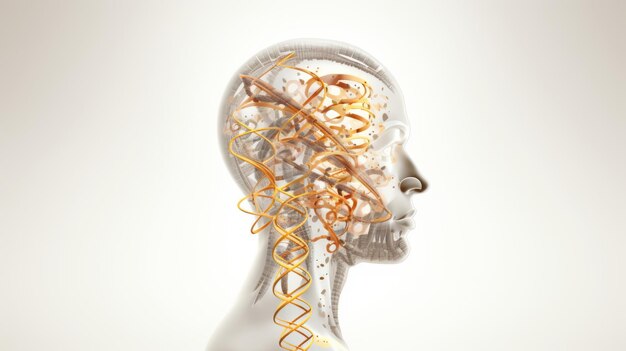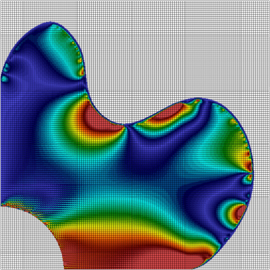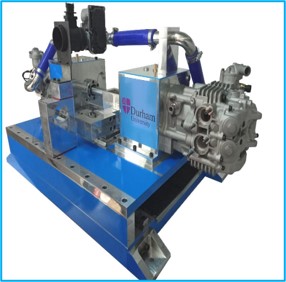Our Research Nodes
Durham University is recognised as one of the leading centres of research in Engineering in the world. Our research is organised into 8 Research Nodes, each representing a distinct area of technical expertise. These Nodes are the foundation of our daily research activities and serve as the structure through which we address complex, real-world challenges.
Our work is deeply aligned with the United Nations Sustainable Development Goals (SDGs), which provide a global framework for tackling urgent environmental, societal, and technological issues. Many of our Research Nodes contribute directly to key SDGs, promoting interdisciplinary collaboration across the Department and wider University. The SDGs addressed through our research include:
- SDG 7 Affordable and Clean Energy: Developing innovative solutions to address current and future energy challenges and opportunities, from both UK and global perspectives.
- SDG 9 Industry, Innovation and Infrastructure: Addressing the need for sustainable and resilient infrastructure to support society and the economy.
- SDG 11 Sustainable Cities and Communities: Exploring the electronic, physical, chemical, and biological properties of materials at nanoscale and beyond to enhance urban sustainability.
Our Research Nodes also connect with cross-faculty Research Institutes, broadening the impact and reach of our work nationally and globally.
Click on the boxes below to learn more about each of our 8 Research Nodes and their areas of interest:
Advanced Materials and Electronic Devices
Node Leader:
Dr Roderick MacKenzie
Bioengineering
Node Leader:
Professor Ashraf Khir
Communications and THz
Node Leader:
Dr Yunfei Chen
Computational Mechanics
Node Leader:
Dr Mohammed Seaid
Electrical Power
Node Leader:
Dr Peter Matthews
Fluid Mechanics
Node Leader:
Professor Grant Ingram
Geotechnical and Environmental Engineering
Node Leader:
Professor Paul Hughes
Thermal Energy
Node Leader:
Professor Andy Smallbone


/prod01/prodbucket01/media/durham-university/departments-/engineering/74202-5112X1676.jpg)
/prod01/prodbucket01/media/durham-university/departments-/engineering/node-webpages/amed/AMED-image.jpeg)
/prod01/prodbucket01/media/durham-university/departments-/engineering/node-webpages/bio/bioengineering-science-concept-human-head-brain-view_146671-97911.jpg)


/prod01/prodbucket01/media/durham-university/departments-/engineering/node-webpages/comms/header-IOT-shutterstock.jpg)
/prod01/prodbucket01/media/durham-university/departments-/engineering/node-webpages/cm/computational-cloured-blurb.png)


/prod01/prodbucket01/media/durham-university/departments-/engineering/node-webpages/ep/EP_Node2.jpg)
/prod01/prodbucket01/media/durham-university/departments-/engineering/fluid-drop.jpg)


/prod01/prodbucket01/media/durham-university/departments-/engineering/node-webpages/geer/Geotechnical-eng.jpg)
/prod01/prodbucket01/media/durham-university/departments-/engineering/thermal-motor.jpg)

